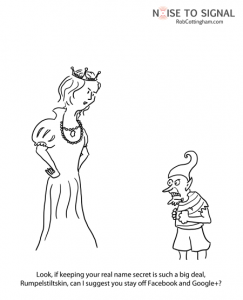 Regularly peruse Yik Yak, an anonymous, location-based app similar to Twitter, and you’ll see the same concern appear every few weeks: what if Yik Yak was to disclose its users’ names? The assumption of anonymity allows people to feel comfortable in posting personal/offensive comments, and revealing the users’ names would be perceived as a massive invasion of privacy.
Regularly peruse Yik Yak, an anonymous, location-based app similar to Twitter, and you’ll see the same concern appear every few weeks: what if Yik Yak was to disclose its users’ names? The assumption of anonymity allows people to feel comfortable in posting personal/offensive comments, and revealing the users’ names would be perceived as a massive invasion of privacy.
As traumatizing as it would be to a Yik Yak user to have the whole campus know what he said about last weekend’s hookup or to be revealed as a closet racist, there are a lot more serious repercussions that could occur from a sudden reversal of anonymity.
For people who rely on anonymity-based software such as TOR, a lot could be resting on the ability to remain nameless. For example, victims of domestic abuse or stalking can use TOR to remain untraceable to their abusers, and the reversal of their anonymity has very real danger. That danger is becoming more apparent with the attacks launched at TOR by hacker group Lizard Squad. By coordinating large-scale takeovers of the software, Lizard Squad can eavesdrop on users who think that their activity is un traceable.
traceable.
The right to anonymity is hotly contested, with some people considering it to be a necessary part of interactions on the internet and others considering it to have a dangerous lack of accountability. But perhaps the question shouldn’t be if anonymity is a good or bad thing, but if it exists at all. With every move on the internet, even the ones that appear to be secret, able to be tracked by those smart enough to do so, it may be unwise to assume that anything on the internet is anonymous.